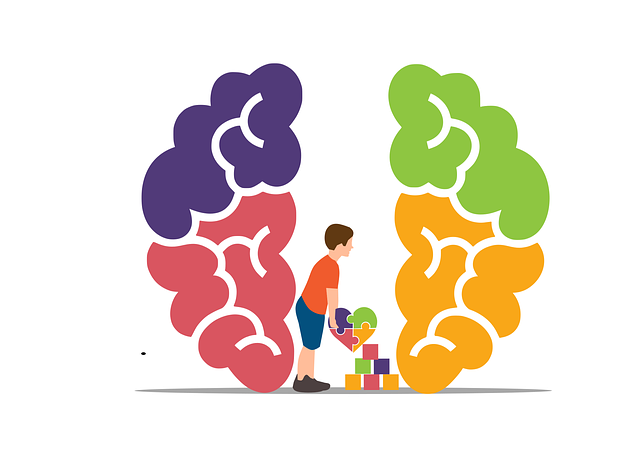Post-divorce trauma significantly affects individuals' mental health and life transitions, making specialized support crucial. Superior Divorce Therapy from Superior Divorce Therapy focuses on emotional processing, coping mechanism development, and addressing underlying issues in a safe environment. The program integrates burnout prevention strategies for healthcare providers, Anxiety Relief techniques, mindfulness, stress management, and cultural competency training to offer holistic care. By cultivating self-awareness and empathy, therapists enhance therapeutic outcomes, empowering clients to heal from trauma, rebuild their lives, and look towards the future with hope and purpose.
Trauma support services play a vital role in aiding individuals cope with the profound effects of divorce. This article delves into the complex relationship between trauma and divorce, highlighting the significant impact on emotional well-being. We explore how Superior Divorce Therapy emerges as a powerful tool for healing and recovery. Key components of effective trauma support are examined, offering insights for professionals to provide compassionate care during this challenging period.
- Understanding Trauma and Its Impact on Individuals Post-Divorce
- The Role of Superior Divorce Therapy in Healing and Recovery
- Key Components of Effective Trauma Support Services
- Strategies for Professionals to Offer Compassionate Care During Divorces
Understanding Trauma and Its Impact on Individuals Post-Divorce

Trauma, a profound emotional response to distressing events, can significantly impact individuals post-divorce. The dissolution of a marriage is often a complex and emotionally charged process, leaving many people grappling with a myriad of feelings—from grief and anger to fear and uncertainty. For some, these emotions can spiral into traumatic experiences, affecting their ability to cope and navigate life transitions. Understanding trauma is crucial in recognizing its far-reaching consequences on mental health and overall well-being.
Superior Divorce Therapy offers specialized support services tailored to address the unique challenges faced by individuals post-divorce. This includes Social Skills Training to help people navigate social interactions with confidence, Inner Strength Development programs that foster resilience and emotional coping mechanisms, and Confidence Boosting strategies to facilitate a positive self-image. By providing these targeted interventions, Superior Divorce Therapy aims to empower individuals to heal from trauma, rebuild their lives, and embrace the future with renewed hope and purpose.
The Role of Superior Divorce Therapy in Healing and Recovery

Superior Divorce Therapy plays a pivotal role in facilitating healing and recovery from trauma, particularly in the context of divorce or separation. This therapeutic approach is designed to help individuals process their emotions, work through complex feelings, and develop coping mechanisms that promote long-term mental well-being. By addressing underlying issues and providing a safe space for expression, Superior Divorce Therapy aids clients in overcoming the psychological barriers associated with traumatic life events, such as divorce or separation.
In addition to its direct impact on healing, integrating Burnout Prevention Strategies for Healthcare Providers within Superior Divorce Therapy is crucial for ensuring the well-being of mental health professionals themselves. Effective Risk Management Planning for Mental Health Professionals can mitigate potential risks and challenges, enabling therapists to provide consistent, high-quality care. Moreover, by incorporating strategies that alleviate Anxiety Relief, therapists create a supportive environment that fosters trust and encourages clients to engage more fully in the therapeutic process, ultimately enhancing recovery outcomes.
Key Components of Effective Trauma Support Services

Effective trauma support services are multifaceted, aiming to provide holistic care for individuals navigating the aftermath of traumatic events. A key component is Superior Divorce Therapy, offering specialized treatment tailored to the unique needs of those dealing with trauma-related issues in their personal relationships and family dynamics. This approach recognizes that unresolved trauma can significantly impact mental health and well-being, exacerbating conditions like depression.
Beyond individual therapy, incorporating strategies for Depression Prevention is vital. This involves empowering individuals with self-care practices, such as mindfulness techniques, stress management skills, and healthy coping mechanisms, to proactively manage their mental health. Additionally, ensuring Healthcare Provider Cultural Competency Training is paramount. Educating healthcare professionals on cultural sensitivity enables them to deliver more effective care, especially when working with diverse populations who may have experienced trauma within specific cultural contexts.
Strategies for Professionals to Offer Compassionate Care During Divorces

Divorces can be emotionally taxing for all involved, and professionals offering support services play a crucial role in mitigating potential trauma. To provide compassionate care during this challenging period, healthcare providers should incorporate strategies that foster understanding and resilience. One effective approach is to cultivate self-awareness among staff, enabling them to recognize their own emotional responses and manage potential burnout—a critical aspect of maintaining long-term effectiveness in offering Superior Divorce Therapy.
Implementing empathy-building strategies is equally vital. Training professionals to actively listen, validate clients’ feelings, and convey genuine understanding can significantly enhance the therapeutic process. By integrating Self-Awareness Exercises into their practices, healthcare providers can improve their ability to connect with clients on a deeper level, thereby fostering an environment of trust and support that’s essential for navigating divorces successfully.
In light of the profound impact trauma can have on individuals post-divorce, it’s clear that specialized services like Superior Divorce Therapy are essential. By integrating key components of effective trauma support and employing compassionate care strategies, professionals can significantly enhance healing and recovery during this challenging time. Understanding trauma and its unique effects is the first step towards creating a supportive environment where individuals can navigate their divorce with dignity and resilience.














